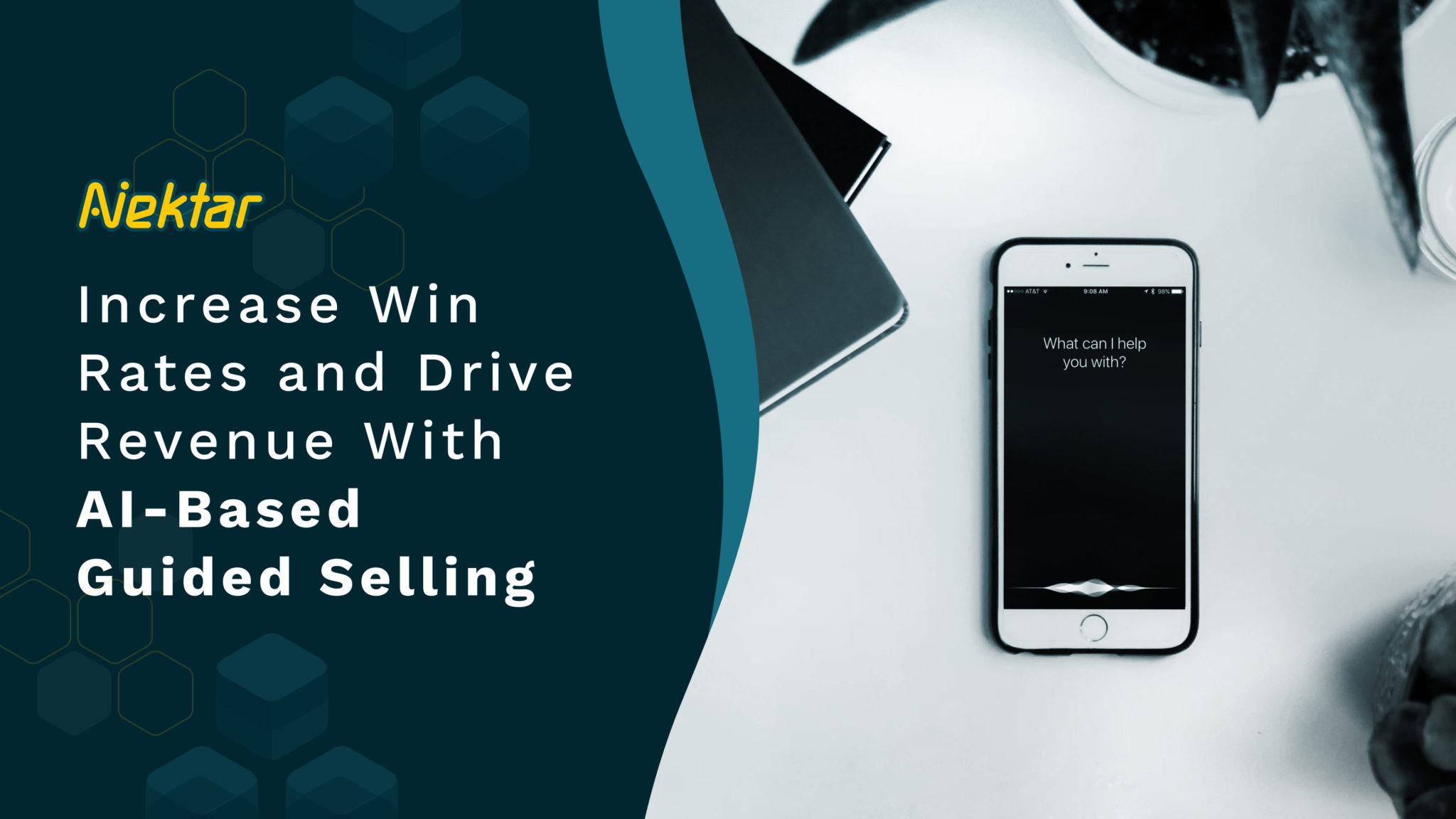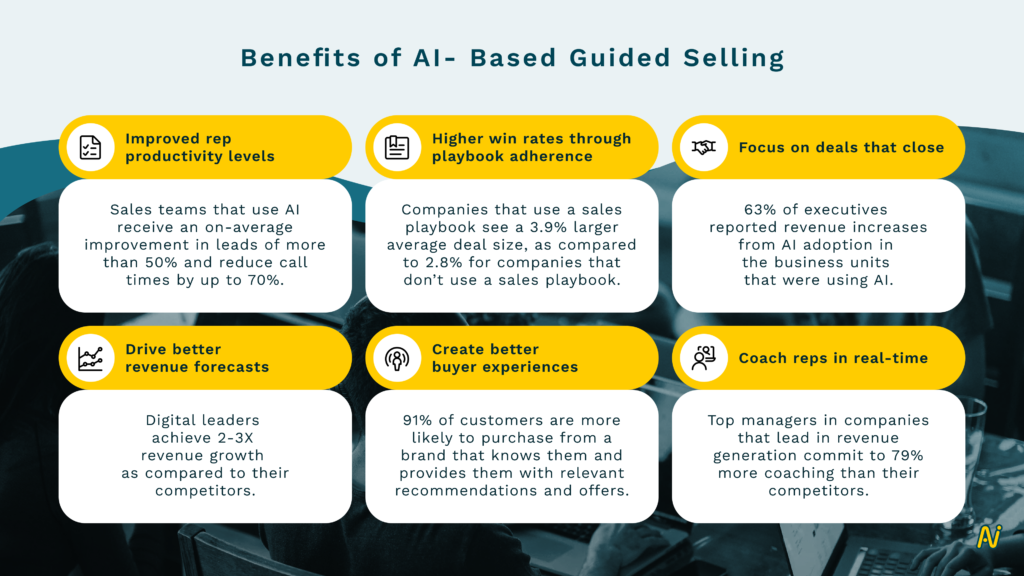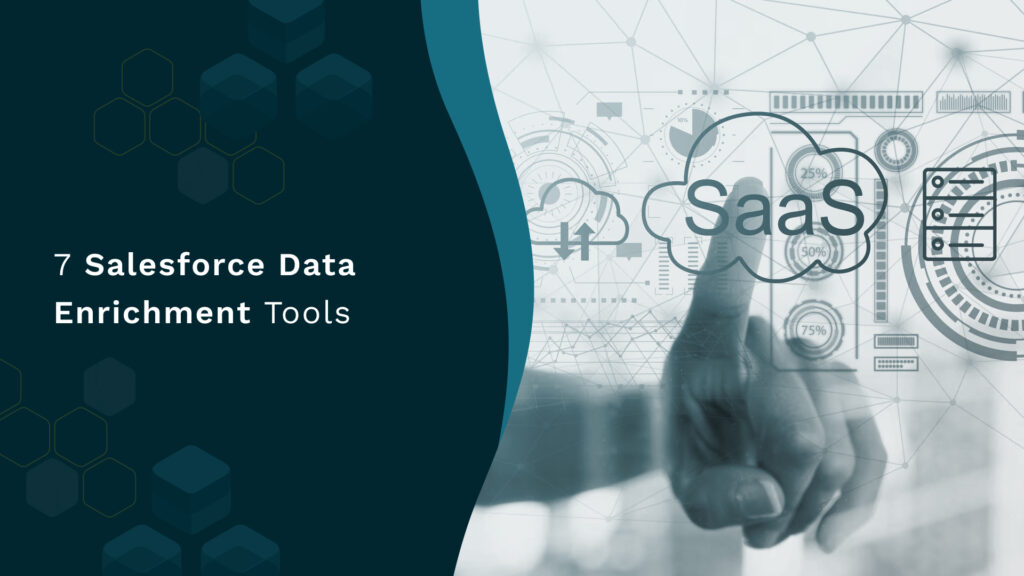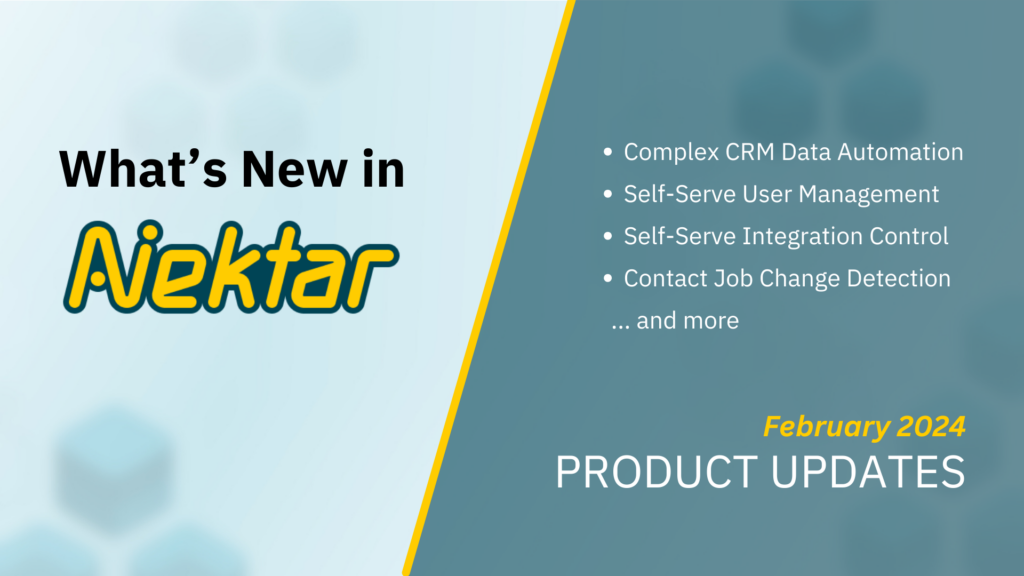An alarming number of reps are missing their quota as B2B selling gets more complex. How can revenue leaders achieve higher win rates in such a scenario?
The answer lies in adopting artificial intelligence in sales.
AI-based guided selling can transform win rates and close more deals than ever before. Now is the time to make it a part of your revenue strategy.
AI is the future of sales. Those who ignore it will disappear.
Tony Hughes, Author, Tech-Powered Sales
What is Artificial Intelligence in Sales
Artificial intelligence in sales leverages sales data to guide your sellers through their sales process. Because the process is data-driven, your sellers have a proven way of selling to customers (rather than relying on their gut-feeling).
Imagine AI based selling as a navigation system for the car your sales reps are driving. Your sales teams can get alerted on the roadblocks ahead. They can make the right pivots at the right time, and mitigate risks that might lie ahead. Your sales team can reach their destination (higher win rates in this case) in the most efficient way possible.
Along with increasing productivity, AI-based guided selling also helps identify patterns that lead to more intelligent business decision making. This ultimately helps in revenue generation.
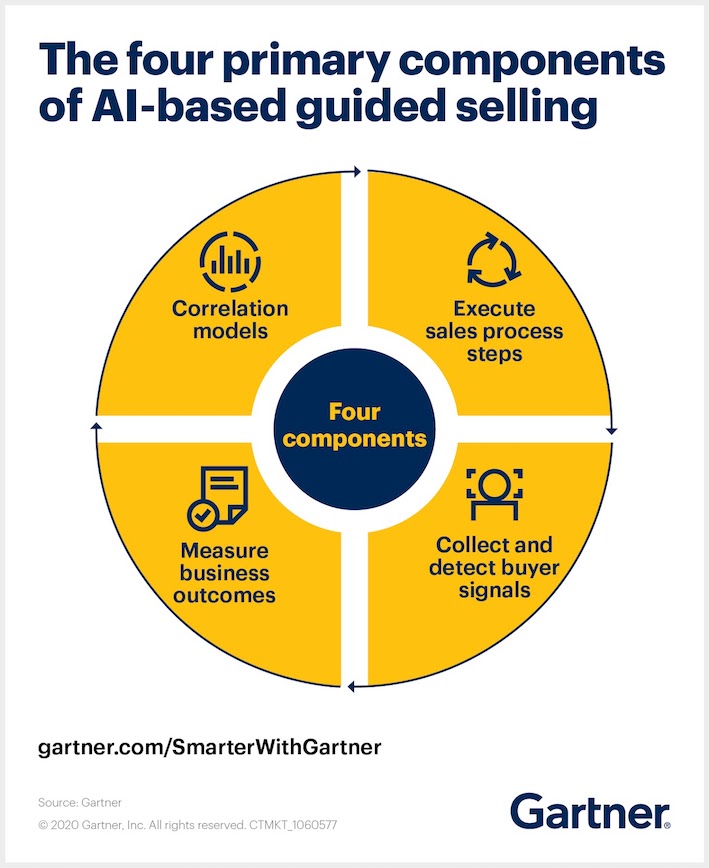
Gartner has assigned four primary components to AI-based guided selling. It comes in two forms:
- Prescriptive, where the software recommends next best actions. For example, organizations can use AI to improve their playbook compliance.
- Predictive, where AI-based guided selling software offers insights. These insights help identify leading indicators to make the sales process more efficient. For example, with insights on the activity data of reps, sales managers can define which deals are real. And which deals they can drop.
With analytical insights, guided selling helps sales teams decide on what to do next to move a relationship, deal or quote forward. It eliminates the dependency on guesswork.
Current Landscape of Artificial Intelligence in Sales
The AI sales market is predicted to grow from $31.5 billion in 2022 to $92.8 billion in 2032. Approximately 80% of organizations plan to increase their investments in the coming year. 72% of revenue leaders plan to deploy an AI-guided selling solution to better enable sales.
Gartner predicts that 60% of B2B sales organizations will transition from experience and intuition-based selling to data-driven selling by 2025.
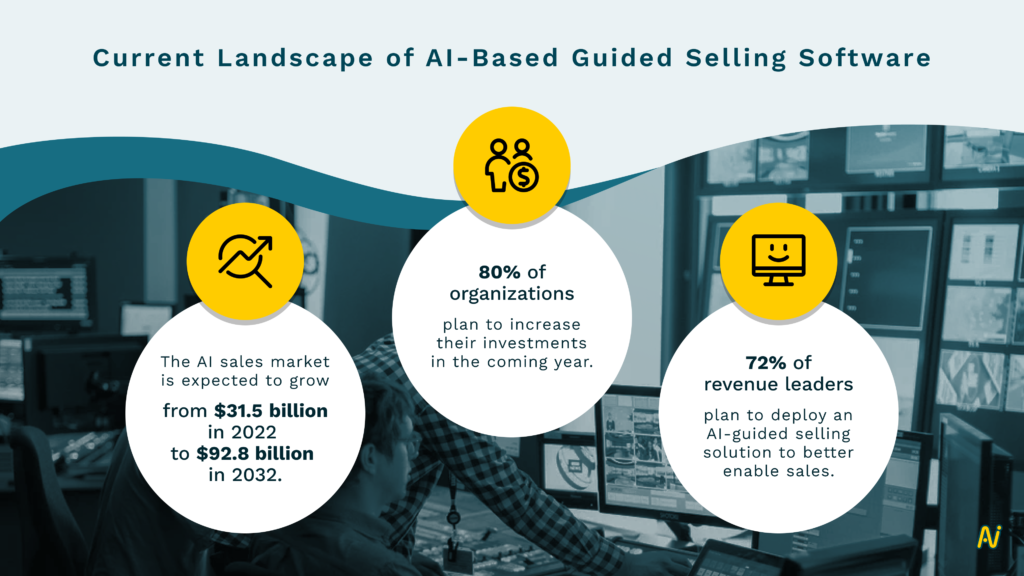
Here are the top reasons that will speed up the growth of AI Sales Software in this period:
- Investment by both small, medium and large enterprises who want to increase their sales revenue with the adoption of AI technologies.
- An increase in demand among enterprises to enhance sales conversion.
- A need for benefits such as lead qualification and follow-up, pipeline management, forecasting, meeting scheduling, and data entry.
AI-based guided selling software can unlock data opportunities by helping revenue leaders make sense of the data minefield that they have in their CRM.
What is the Need for Artificial Intelligence in Sales?
According to Gartner, artificial intelligence (AI) functionality has permanently transformed the form and function of guided selling capabilities.
Traditional processes of selling don’t work in today’s hyper-competitive environment. They lack a data-driven approach. Mostly based on “guesswork,” traditional processes of selling fail to provide relevant recommendations that guide sellers to win deals.
The pandemic exposed cracks in many organization’s sales processes. Knowing that sales process discipline must be improved to increase the chances of closing new deals, sales leaders are investigating new data-driven, AI-based guided selling functions for improved sales execution.
Tad Travis, Research VP, Gartner
To navigate the complex process of selling that exists today, Gartner suggests B2B sales organizations to help sellers improve sales execution by adding AI-based guided selling to their sales tech stack.
As the key element of successful selling moves from a seller-centric approach to a buyer-centric one, here are some top reasons that is making the world move towards data-driven selling:
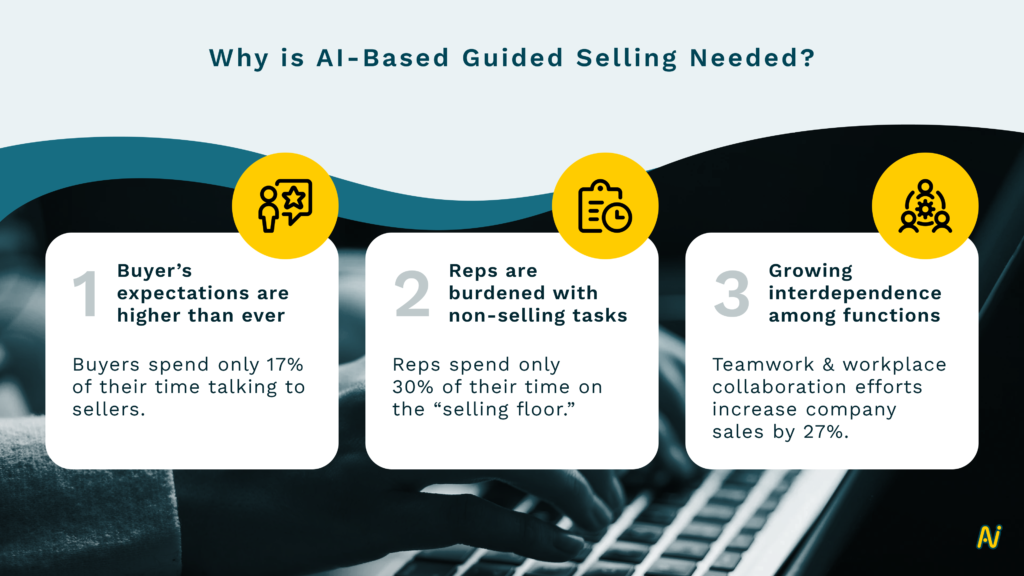
1. Buyer expectations are higher than ever
B2B buyers do their own research before meeting with sales reps. They spend as much as 18% of their time independently researching your product, competitors and forming their own understanding of their needs and the market.
And they only spend 17% of their time talking to sellers. In this small window of opportunity, they prefer to engage with sellers through digital and self-service channels. They want a rep who acts as a subject matter expert in their field, and is able to help them make a confident purchase decision.
Buyers want a consultative selling experience via a channel of their choice, with near-instant response times. And the information exchanged in this interaction should be just accurate and valuable, with both the buyer and seller being at the same page.
For this, sellers need to be aware of what stage the buyer is at, and what exact problem they are facing at that stage. Technology that helps them stay in touch with this is what will help sellers be successful in this new age where the buyer dominates.
2. Reps spend too much time on non-selling tasks
To be able to sell in today’s competitive environment, reps need to spend more time on strategic tasks that help them close more deals. However, reps spend only 30% of their time on the “selling floor.”
According to Salesforce, the top non-selling activities that sales reps spend time on are managing emails, logging activities, inputting sales data and customer notes. This takes up a significant chunk of their time.
Sales reps need technologies that help them eliminate such manual dependencies. They need to be able to focus on strategic selling activities like engaging a prospect, or figure out how to move a deal forward.
AI-based guided selling solutions can help them automate manual activities like CRM data entry. Reps can have time to do what they do best – sell.
3. There’s a growing interdependence among functions
Traditionally, all customer-facing functions such as sales, marketing and customer success operated as separate units, with their own tech stacks, plans and resources. This disconnect in goals, data and strategies leads to uninformed and inaccurate decisions that ultimately hurts revenues.
Functioning in such silos is no longer acceptable. The interdependence between people, processes and technology continues to grow. Merging all these facets will be key to stay relevant and drive revenue in the near future.
To serve a modern buyer’s sky high-expectations, customer-facing functions need alignment with one another. They should work together towards common goals towards increasing customer satisfaction levels.
Teamwork and workplace collaboration efforts increase company sales by 27%, and improve customer satisfaction ratings by 41%. An AI-based guided selling solution creates a single source of truth for the entire organization.
“The growing interdependence of people, processes and technology will render the traditional sales model less reliable over time – something for which most sales organizations are unprepared. Embracing this change means sales leaders must adopt the principles of hyperautomation – accept they have to meet customers where they already are and bring B2B digital commerce into the fold.”
Tad Travis, VP Analyst, Gartner
How Does Artificial Intelligence in Sales Improve Win Rates?
How can AI-based guided selling help you sell more? Let’s look at some top benefits that organizations cite:
1. Improvement in rep productivity
Sales teams that use AI receive an on-average improvement in leads of more than 50% and reduce call times by up to 70%.
An AI-based CRM can automate many manual sales activities like logging in lead information, scoring leads, or figuring out how to move deals through the pipeline.
AI-based guided selling takes care of manual and repetitive tasks. Your sellers can focus on building strong relationships and retain customers for life.
2. Adherence to winning playbooks
If there was one magic potion for success, every sales rep would always know what step to take next. What is the best time to reach out? When is the right time to make an offer? A playbook answers all these questions.
Companies that use a sales playbook see a 3.9% larger average deal size, as compared to 2.8% for companies that don’t use a sales playbook.
On the basis of your winning playbooks, you can set your mantra for success through a specific set of instructions for your sales process for each deal within the sales pipeline.
You can operationalize your playbooks, giving sellers a clear guide in front of them. This reduces sales cycle lengths and builds a repeatable and scalable sales engine. With such standardized sales processes, you can build a quota smashing team.
3. Access to deal intelligence
63% of executives reported revenue increases from AI adoption in the business units that were using AI.
AI-based guided selling enables sales teams to focus on the deals that are most likely to close.
With data-driven insights generated by guided selling solutions, effective deals are brought to the forefront. Sales teams are warned of deal risks early on to act fast and influence the outcome to their advantage.
Nowadays, buyers are savvier and more informed, and they do research before interacting with salespeople. Their personalized experiences put a greater burden on sales departments since they want to receive services tailored to their unique needs. The customer wants to be impressed, but it’s becoming increasingly difficult. AI-guided selling powered by Machine Learning (ML) is our solution.
With the increasing amount of customer data, AI-based sales is the future of sales. Salespeople must tailor their approach based on the customer’s data. With AI, all that data can be organized and made into predictive suggestions so they have access to more information than ever before. Additionally, sales AI is constantly learning new trends and adjusting predictions in real-time to keep your team up-to-date with customized learning recommendations.
Guided selling also alerts teams on predictive next steps that they should take to move an important deal forward. Has the rep not approached a key decision maker yet? Has the sales rep failed to follow up with a key champion? AI will remind sales reps of these activities, so that they stay on top of crucial deals, and increase their chances of closing them.
Christian Velitchkov, Co-Founder, Twiz LLC
4. Better revenue forecasts
According to a study by Accenture, digital leaders (the top 10% of companies leading technology innovation) achieve 2-3X revenue growth as compared to their competitors.
Traditional ways of revenue forecasting rely on human tendencies like guesswork and instinct. This makes it impossible to generate realistic revenue forecasts.
How do you know which deals are going to close for sure, so that you can set your numbers for the quarter?
AI-based guided selling gives complete visibility into your pipeline health. It constantly analyzes important KPIs of the pipeline including number of deals, average deal size, closing speed, sales cycle length etc.
With such a crystal clear view into deal health, sales managers can take the right steps to achieve the targeted revenue.
By staying ahead of risks, sales managers can pivot where necessary and successfully predict their numbers.
5. Tailored buyer experiences
91% of customers are more likely to purchase from a brand that knows them and provides them with relevant recommendations and offers.
Today’s buyers want personalized experiences based on their unique needs.
AI-based guided selling uses sales data to boost your sales team’s ability to engage with prospects at every stage of the buying journey. It tells your reps the exact stage where the buyer is at, and suggests next best steps to significantly increase chances of closing the deal.
Buyers see real benefit in interacting with sellers when they get a personalized selling experience. With a guided selling strategy, reps can ask pointed questions, practice active listening, act as a SME and use predictive analytics to reveal buyer’s exact pain points. Sellers can use that information to build trust and loyalty with the buyers.
6. Effective sales coaching
Top managers in companies that lead in revenue generation commit to 79% more coaching than their competitors. Better coaching creates better sellers, who have higher win rates.
But as companies scale, it gets impossible for sales managers to coach each and every rep manually. AI-based guided selling analyzes collected sales data to find patterns that drive wins and losses. Sales managers can turn these insights into contextual guidance for reps who need it at the right time.
For instance, a sales manager might observe that an important deal hasn’t moved forward for 30 days. He can flag this immediately to the concerned rep, and ask him the reason. Perhaps the rep hasn’t followed up. Or the rep is engaging the wrong person in the buying group. Based on the reason, the manager can coach the rep on the best way to move to deal forward.
This is a powerful way to boost in-person coaching, drive more wins and achieve faster deal cycles.
How Does Artificial Intelligence in Sales Work?
Though it might sound complicated, you can easily integrate an AI-based guided selling software into your existing sales processes.
You can link an AI-guided selling software to your CRM already in use. CRMs by themselves do not inform sellers on how they can make sense of the data within it. In fact, your sales reps keep feeding the CRM with more data by the day, creating a minefield of numbers and information that adds to confusion.
CRM data has its own inefficiencies like siloed data, incorrect information or stale data. Adding an AI layer on top of the CRM can help remove human errors, automatically capture data without human intervention, and give insights on the data that is already there.
This allows the software to access and analyze all the sales data that is in your CRM. The software analyzes this data, and provides your sales team with powerful insights on how they can leverage that data to win more deals.
Not only this, an AI-based guided selling software can act as the “Siri for Sales” by helping reps analyze their data and suggest next-best actions on how to move a deal forward.
With data increasing within organizations by the day, organizations can use AI to make sense of it. And a guided selling solution can help reps and managers get complete visibility of their sales process, so that they know what they need to do today to get the most out of their pipeline.
The Path Forward & Barriers to Overcome
There are certain hurdles to adopting an artificial intelligence in sales solution, as per this study:
- 54% of respondents in a survey identified getting cross-functional support from the broader organization as a major challenge.
- 40% identified concerns about data quality or sufficiency as a cause of hindrance.
- 35% identified the ability to integrate AI-guided selling with other experiences salespeople use today as the third biggest challenge.
Getting institutional support from leadership continues to be a major challenge. Convincing top management of how an intuition-based sales process is no longer effective requires a major cultural shift within organizations.
Gartner recommends that sales leaders follow the below four actions before implementing artificial intelligence in sales:
- Educate all sales partners on the foundational elements of AI-based guided selling, including micro level actions of engagement that sellers undertake within the span of an active deal.
- Identify sales process steps and business outcomes that are unique to the organization’s processes to find the best-fit solution.
- Update the sales technology roadmap by selecting the form of AI-based guided selling technology that is most relevant to the sales organization’s lead, opportunity, sales enablement and quote management use cases
- Prioritize where AI-based guided selling functions would be most relevant by identifying the parts of the sales value chain that are prone to the highest amounts of human-educated guessing.
Getting a buy-in from leaders around the business value of AI selling and the relevant metrics it will affect will be crucial. Treating it as just another addition to the existing sales tech stack won’t work. Viewing it as an integral part of your organization’s CRM and sales enablement strategy is key.
The next 12-18 months will see a rise in deploying this capability. Those who become a part of this revolution will benefit and see a sharp rise in their win rates, and drive predictable revenue across the GTM function.

